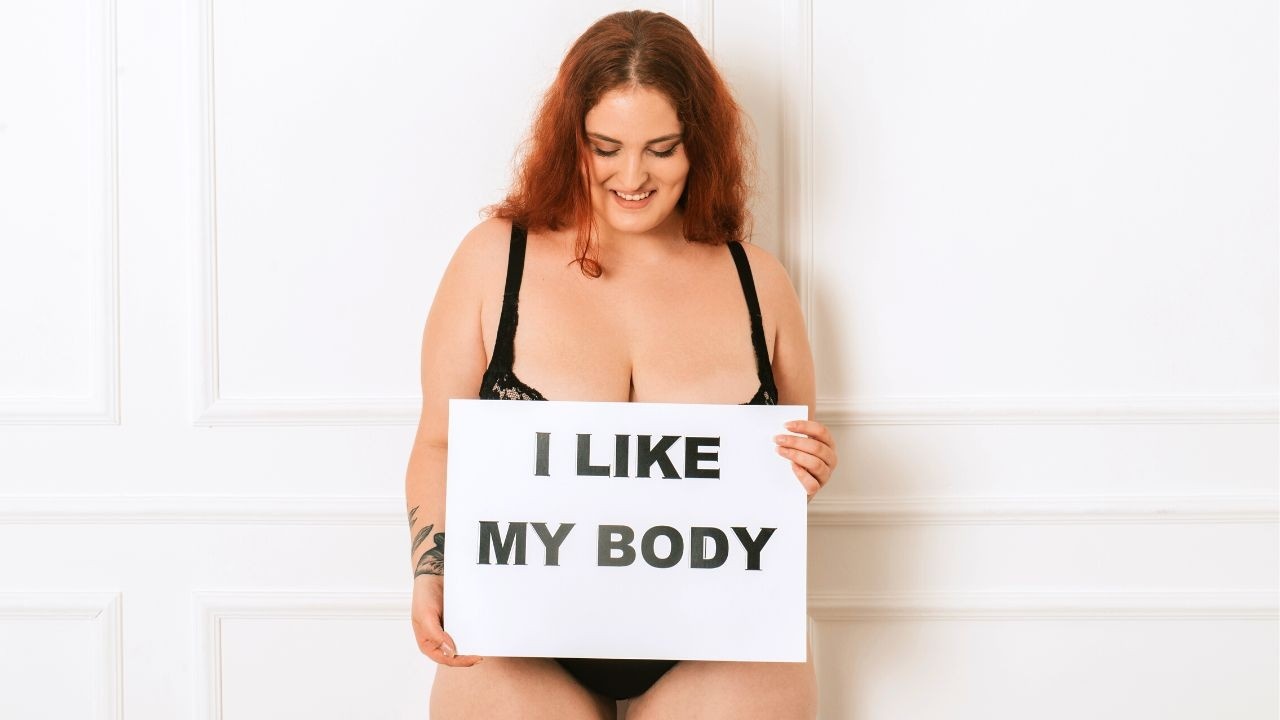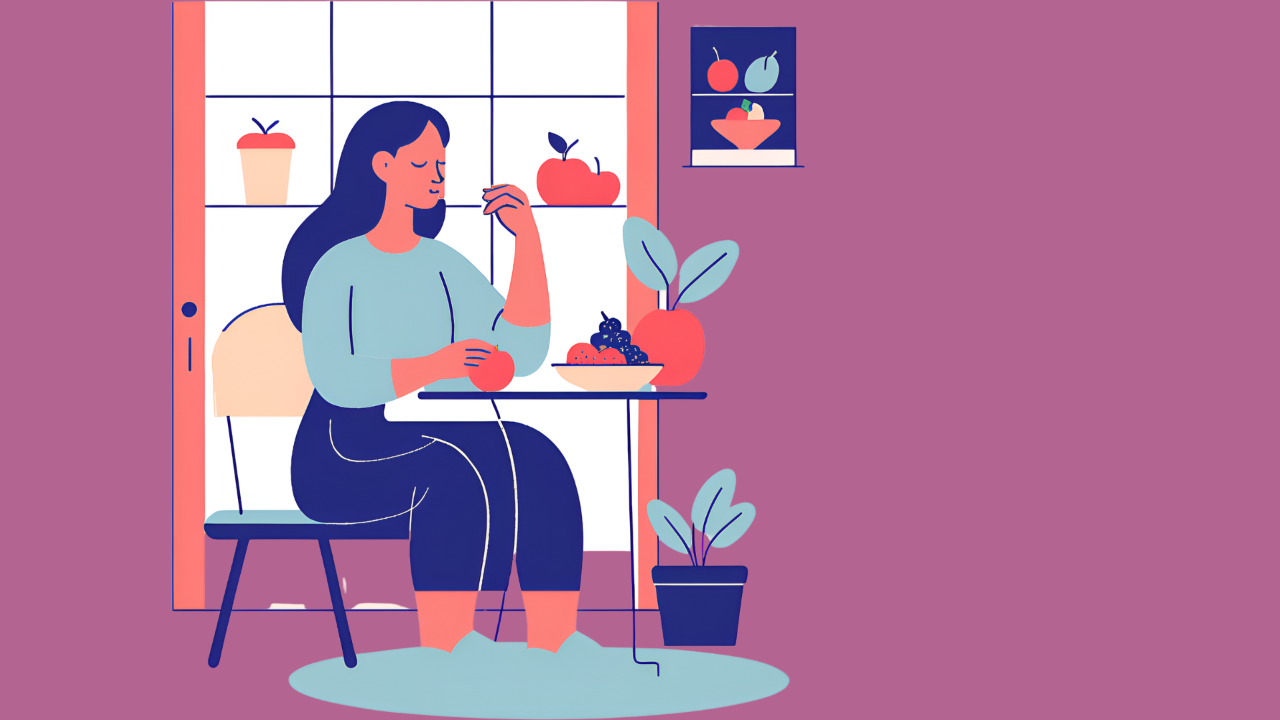How to improve your body image without dieting

Dieting makes body image worse.
Poor body image is often blamed on weight or appearance, so naturally the solution seems to be "fixing" our bodies, often through dieting. If you relate to this you may have noticed weight loss attempts don’t improve body image long term. In fact, dieting creates more attention on the body leading to more critiquing of ourselves and less focus on our true values. If you experience poor image, here's some reasons why and some steps you can take for a happier relationship with your body.
What influences body image
Body image is the way you feel about your body or how you believe other people perceive your body. We’re often under the impression that to improve body image, we need to change our bodies. And it makes sense. The appearance of your body is what you feel poorly about. Yet body image actually has very little to do with your body itself. In fact an increased focus on the body creates a worsened body image, not better.
Your body image comes from your mind.
It is your thoughts (created by neural pathways in your brain) that create your perception of your body. The only thing that can improve your body image is by learning more about your thoughts and how you interact with them.
Think about the way bodies are portrayed in your environment. How are thinner bodies portrayed? And how are larger bodies portrayed? Our culture falsely connects being thin with increased value, worth, motivation and likeability, so it is no wonder your body image can often be wrapped up in thoughts about the size of your body.
Messages about which bodies are “good” and which are “less worthy” have become so normalised we often don’t even notice them but we do absorb them. Our culture is so focused on an idealised beauty and those who have body types or features closer to this invented ideal receive higher societal value and less pressure to change simply because of their appearance.

Why dieting does not improve body image
With our cultural ideals around bodies, it seems logical that if you lose weight, you will be perceived better in a society that values thinness and your body image will improve. That might happen short term but here’s why trying to improve your body image through weight loss does not work long term.
-
You hyper-focus on your body
You can become critical of the appearance or size of your body, comparing it with unrealistic ideals, never finding peace in your here-and-now. Your relationship with your body can become about control rather than self care. This increased focus on your body can leave less headspace and confidence for your true values, drawing you further away from what makes you feel good.
-
You tie body image to a size
If you don’t lose the weight you want, you will likely find increasingly self-critical thoughts. And with the photoshopped and unrealistic beauty ideals, you may find you are never satisfied with your body. With up to 95% of people regaining lost weight within 2-5 years, having your body image tied to your weight loss is not supporting your long term wellbeing.
-
It can trigger bloating and other gastrointestinal discomfort
Dieting is a common cause of bloating, distention, abdominal pain and excess wind. This creates an increased awareness of discomfort in the body and sometimes increased feelings of heaviness. This along with frustration and stress towards the pain and sometimes reduced socialising due to GI upset, abdominal pain from dieting has multiple pathways to result in worsened body image.

What are body image thoughts
Your thoughts are neural connections between cells in your brain. When you hear information, it creates neural connections which form into neural pathways. At this stage, the neural pathways can pretty easily be shifted to form a different neural pathway and create different thoughts. But, when you repeatedly hear the same information, it strengthens the existing neural pathway. When this thought (aka neural pathway) in your brain becomes really strong, this is what we call a belief.
Thinking about how often we are bombarded with information about bodies and thinness in our culture, it’s fair to say we have some strong beliefs around what we want our body to look like. And with our culture’s unrealistic body ideals, for most of us, it is not possible to morph our bodies into this ideal. To feel better about your body, you need to change the beliefs you have about what your body should like from this biological level - the neural pathways.

3 steps to create positive body image thoughts
These 3 steps will help you shift the unhelpful belief pathways in your brain and create new, more helpful neural messages for a happier relationship with your body:
1. Notice your thoughts
When you have a thought about your body, consciously notice it, take a pause and get curious. Why are you having this thought? Where did it come from? And does it feel supportive or unsupportive for you? This will help break the subconscious cycle of hurtful body thoughts.
2. Label your thoughts
When body thoughts arise that feel unsupportive (for example, it makes you feel shame), place a label on that thought to separate it from yourself. It may be simply “unsupportive thought” or perhaps “diet culture” thought. This helps to separate the thought form your true self values.
3. Reframe your unsupportive thoughts
Is there another positive or neutral way to think about your body or body part? Counter the unsupportive thoughts with new ones. For example, "my thighs are strong". Even if you don’t believe the new thought, you are actively starting to weaken the old neural messages and create new ones.
How to have better body image
To feel better in your body you need to move away from attempting to change your appearance to instead changing the beliefs you have about your body. Remember, thoughts are not truth, if a thought is not helpful, you don’t have to act on it. In fact, the more you notice, label and reframe your thoughts, the weaker and less overwhelming the thought will become.
If poor body image has created a stressful relationship with food and dieting, you can find and food freedom with your FREE e-book, "5 steps to get started with Intuitive Eating".
Author Bio:
Written by Emma Townsin, Registered Dietitian and Certified Intuitive Eating Counsellor
Emma is the founder of Food Life Freedom and the host of the Food & Life Freedom Podcast. For personalised support to stop stressing over health and heal your relationship with food and your body, learn how you can fast track your way food and life freedom.
Want 1-to 1 support?
Learn how you are supported to feel good around food.








